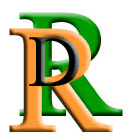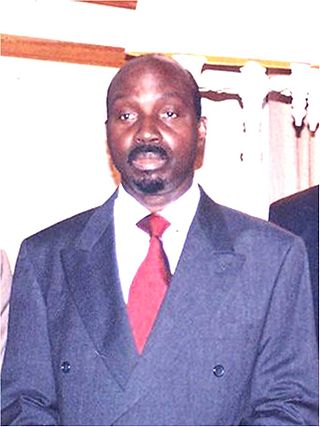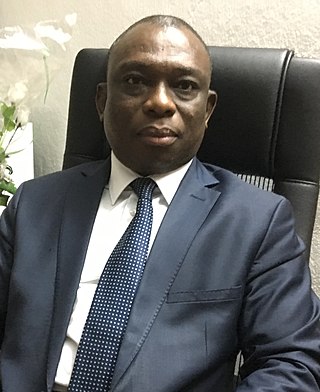
The politics of Ivory Coast takes place in a framework of a presidential representative democratic republic, whereby the President of Ivory Coast is both head of state and head of government, and of a multi-party system. Executive power is exercised by the President and the Government. Legislative power is vested in both the government and parliament.

Koudou Laurent Gbagbo is an Ivorian politician who was the president of Côte d'Ivoire from 2000 until his arrest in April 2011. A historian, Gbagbo was imprisoned in the early 1970s and again in the early 1990s, and he lived in exile in France during much of the 1980s as a result of his union activism. Gbagbo founded the Ivorian Popular Front (FPI) in 1982 and ran unsuccessfully for president against Félix Houphouët-Boigny at the start of multi-party politics in 1990. He won a seat in the National Assembly of Côte d'Ivoire in 1990.

Aimé Henri Konan Bédié was an Ivorian politician. He was President of Côte d'Ivoire from 1993 to 1999, and formerly President of the Democratic Party of Ivory Coast – African Democratic Rally (PDCI-RDA). Prior to becoming president, he was a member and president of the National Assembly of Ivory Coast. He unsuccessfully sought another term as president in the 2020 presidential election.

The Rally of the Republicans is a liberal party in Ivory Coast. The party is the country's governing party; the party's leader, Alassane Ouattara, is the current President of Ivory Coast.
The First Ivorian Civil War was a civil conflict in the Ivory Coast that began with a military rebellion on 19 September 2002 and ended with a peace agreement on 4 March 2007. The conflict pitted the government of Ivorian President Laurent Gbagbo against a domestic insurgency led by the New Forces of Ivory Coast. Following the war, a second civil war (2010–2011) would begin over the results of the 2010 Ivorian presidential election.

Alassane Dramane Ouattara is an Ivorian politician and economist who has been President of Ivory Coast since 2010. An economist by profession, he worked for the International Monetary Fund (IMF) and the Central Bank of West African States, and was the Prime Minister of Côte d'Ivoire from November 1990 to December 1993, appointed to that post by then-President Félix Houphouët-Boigny. Ouattara became the president of the Rally of the Republicans (RDR), an Ivorian political party, in 1999.

Francis Vangah Romain Wodié was an Ivorian politician, jurist, and human rights activist. He led the Ivorian Workers' Party (PIT) from 1990 to 2011. During that time, Wodié served as a Deputy in the National Assembly of Côte d'Ivoire from 1990 to 1995 and as Minister of Higher Education from 1998 to 1999. He was President of the Constitutional Council of Côte d'Ivoire from 2011 to 2015.

Simone Ehivet Gbagbo is an Ivorian politician. She is the President of the Parliamentary Group of the Ivorian Popular Front (FPI) and is a Vice-President of the FPI. As the wife of Laurent Gbagbo, the President of Côte d'Ivoire from 2000 to 2011, she was also First Lady of Ivory Coast prior to their arrest by pro-Ouattara forces.

Presidential elections were held in Ivory Coast in 2010. The first round was held on 31 October, and a second round, in which President Laurent Gbagbo faced opposition leader Alassane Ouattara, was held on 28 November 2010. Originally scheduled to be held in 2005, the vote was delayed several times due to the Ivorian Civil War and difficulties involved in the organization and preparation of the elections. A peace agreement between the government and the former rebel New Forces was signed on 4 March 2007, and in late April 2009, it was announced that the elections would be held by 6 December 2009, and that the date would be announced shortly. On 15 May 2009, the date was announced to be 29 November 2009. On 11 November, the elections were postponed again due to delays in the electoral roll. It was announced on 3 December 2009 to be held in late February or early March 2010.

Parliamentary elections were held in Ivory Coast on 11 December 2011, after the presidential elections in late 2010. They followed a peace agreement between the government and the New Forces that was signed in March 2007. The Rally of the Republicans, the party of President Alassane Ouattara, won just under half the seats in the National Assembly.

The 1999 Ivorian coup d'état took place on 24 December 1999. It was the first coup d'état since the independence of Ivory Coast and led to the President Henri Konan Bédié being deposed.
Paul Yao N'Dré is an Ivorian politician and magistrate who was president of the Constitutional Council of Côte d'Ivoire from 2009 to 2011. A long-time loyalist of president Laurent Gbagbo, he had served in the government for a time as Minister of the Interior.

The 2010–11 Ivorian crisis was a political crisis in Ivory Coast which began after Laurent Gbagbo, the President of Ivory Coast since 2000, was proclaimed the winner of the Ivorian election of 2010, the first election in the country in 10 years. The opposition candidate, Alassane Ouattara, and a number of countries, organisations and leaders worldwide claimed Ouattara had won the election. After months of attempted negotiation and sporadic violence, the crisis entered a decisive stage as Ouattara's forces began a military offensive in which they quickly gained control of most of the country and besieged key targets in Abidjan, the country's largest city. At the time, international organizations reported numerous human rights violations, and the UN undertook its own military action with the stated objective to protect itself and civilians.
The following lists events that happened during 2010 in Ivory Coast.
The following lists events that happened during 2011 in Ivory Coast.

Presidential elections were held in Ivory Coast on 31 October 2020. Incumbent president Alassane Ouattara was re-elected with 95% of the vote amidst an opposition boycott.
Events in the year 2020 in Ivory Coast.

Kouadio Konan Bertin, known as KKB, is an Ivorian politician. He represented Port-Bouët in the National Assembly from 2011 to 2016.
This period in the history of Ivory Coast was affected by the end of the 33-year reign of Félix Houphouët-Boigny in 1993, as well as demographic change which had seen the Muslim population rise from 6% in 1922 to 38.6% in 1998, including a majority in the north of the country.
Chantal Camara Nanaba is an Ivorian judge. In April 2019, she was made president of the Court of Cassation, joining the other three judges Pierre Kobo Claver, Koné Mamadou and Francis Wodié. In May 2020 she became president of the Superior Council of the Judiciary. President of the republic, Alassane Ouattara, appointed her to a term of three years. She has received the highest honour bestowed by the state, the National Order of the Ivory Coast. On May 9, 2023, while she is a magistrate outside the hierarchy of group 1 single level, she was appointed President of the Constitutional Council by decree for a non-renewable term of 6 years. The announcement is made by the Minister Secretary General of the Presidency Abdourahmane Cissé and Chantal Camara is to succeed Mamadou Koné's post, which has been empty for 2 years following a "politico-judicial imbroglio". She takes office on July 21, 2023.